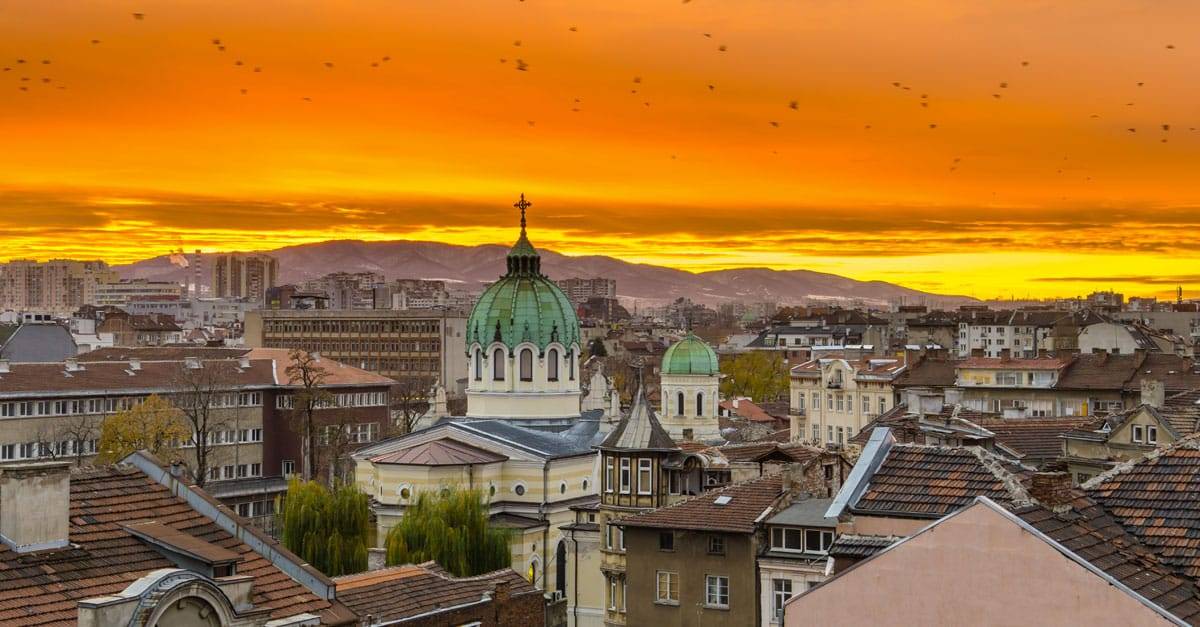If you live in Sofia, Bulgaria, you’ve likely bought or sold property in the past 15 years. Recently, there were over 400,000 transactions in the city. This means that approximately one-third of the 1,274,000 residents have bought or sold a home. While this ratio is of limited significance, it shows how important the housing market is for Sofia’s citizens.
Since 2012, the real estate market in Sofia has been steadily increasing. The number of transactions has doubled from 18,166 in 2012 to 36,836 in 2021. However, it’s important to mention that this growth happens every year.
In 2020, the number of transactions in the capital decreased to 28,156 due to the COVID-19 pandemic. This was only 1,600 less than the previous year. The pandemic led to more real estate deals, reaching a record high in 2021 compared to previous years.
Living in Sofia – is more expensive than ever, but cheaper than in most European cities
Logically, the record in transactions also brought a record in prices. According to “Imoteka”, a major real estate agency, the average price per square metre by mid-2023 was approximately 1820 euros. This figure represents a 13% increase compared to the previous year. There are no consistent statistics for the Sofia market and businesses use data from various sources.
Wealth Aggregation: Simple, Dynamic, and Secure Beyond Compare. Discover the Altoo Wealth Platform!
Where you buy a house in the city matters. In Lozenets, prices are high, about 3000 euros per square meter. But in Obelia, prices are lower, around 1200 euros.
Prices are now higher than they were in 2008, even though the economy is better. Wages are higher, interest rates are lower, and there is more money in the economy.
High Inflation, low Interest Rates
The property market in Sofia is booming because of low-interest rates for loans and deposits, inflation, and consumer habits.
Loans in Bulgaria have become more affordable in recent years. As a result, it is now the cheapest time ever to borrow money in the country’s credit market.
According to official data from the Bulgarian National Bank, interest rates for mortgage loans will reach their historic low in 2022 – around 2.5 %. Before the economic crisis in 2008, the cost of a loan was 8 to 10%. This rate was three to four times higher than the current rate.
Low-interest rates have encouraged individuals to invest in real estate instead of keeping their money in the bank. This, in turn, has financially boosted the housing market.
Inflation, the bugbear for all savers in Europe, has become another reason to channel funds into the real estate market. In 2015, according to official national statistics, inflation in Bulgaria was exactly … 0 %.
However, this is also the last “quiet” year for the country’s economy. Inflation slowly increased over the next 5 years. By the end, there was a total increase of 10.7%.
The issue began with the COVID-19 pandemic and actions by the European Central Bank to fight the economic decline. As a result, inflation in Bulgaria has risen to a cumulative 26.7% in just three years since 2020.
Low-interest rates on loans and deposits have encouraged unsure buyers to purchase, even at higher prices.
But there is another, more invisible reason for the growth of the real estate market in Bulgaria and Sofia in particular. Bulgaria has the highest number of flats per person in Europe, with 624 flats for every 1,000 people, according to Deloitte.
One of the explanations for this statistic could be quite simple: Bulgarians love real estate. Due to past hyperinflation and the profitable nature of real estate investments, many Bulgarians choose to invest their savings in property. And Sofia, as the largest and growing market in the country, attracts the most attention from the population.
Cooling of the Market and a big Question
Despite Bulgarians’ traditional optimism about real estate, recent data shows a deterioration in the market situation. The market in Sofia is currently in a recession.
This is because there has been a decrease in transactions for three consecutive quarters. Furthermore, people are also observing this trend across the entire country. Experts say that fewer transactions do not indicate any changes in mortgage lending conditions. However, they do acknowledge that people anticipate banks’ policies to change in the future.
Experts predict a decrease in housing construction. Since early 2023, building permits have been declining, resulting in fewer buildings and dwellings.
The number of properties under construction is decreasing. However, it’s important to mention that local buyers prefer new construction, and the decrease in demand shows market sentiment. The data for the second quarter will show if there is a recession in construction or not.
So everything points to 2023 being a key year for the real estate market in Sofia. The main question is whether it will decline as in Europe or if it can maintain the supply and demand balance.



